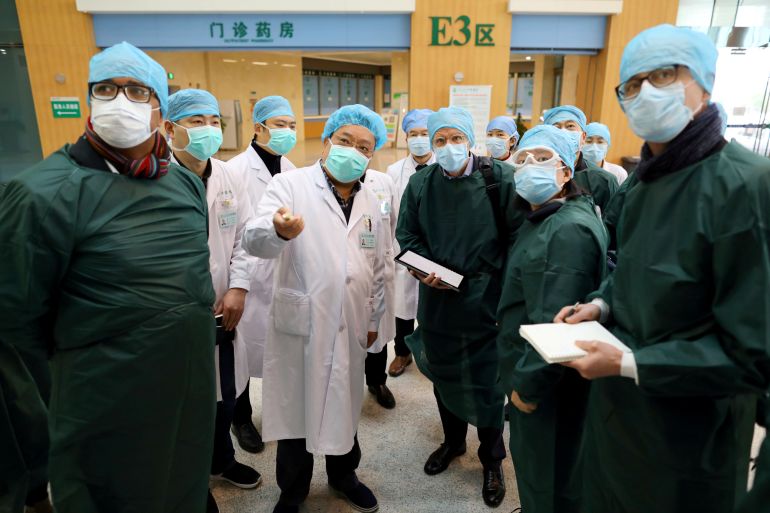COVID review panel critical of China, WHO delay
Interim report says Chinese officials could have applied public health measures more forcefully, WHO took too long to declare international emergency.

Chinese officials could have applied public health measures more forcefully in January with the spread of the coronavirus and the World Health Organization (WHO) took too long to declare an international emergency, an independent panel reviewing the global handling of the COVID-19 pandemic has said.
The virus was first detected in the Chinese city of Wuhan in late 2019, before seeping beyond the country’s borders to wreak global havoc, costing more than two million lives and eviscerating economies.
Keep reading
list of 4 itemsPandemic19: On the front line of the US coronavirus outbreak
Can India’s comic superhero defeat coronavirus misinformation?
UK coronavirus cases top 3 million as death toll passes 80,000
In an interim report on Monday, the panel of experts, led by former New Zealand Prime Minister Helen Clark and former Liberian President Ellen Johnson Sirleaf, said: “The global pandemic alert system is not fit for purpose. The WHO has been underpowered to do the job.”
Monday’s report comes on the day Al Jazeera’s Investigative Unit released 3 Days that Stopped the World, which showed the city of Wuhan during a crucial period early in the pandemic.
Footage taken by two Chinese journalists and smuggled out of the country shows how the Chinese government failed to provide the necessary medical resources and attempts to censor journalists trying to report on the outbreak.
The report also called for a “global reset” and said it would provide recommendations in a final report to health ministers in May.
.@TheIndPanel on Pandemic Preparedness & Response briefs WHO Executive Board on its 2nd progress report tomorrow. Senior @devex reporter @JennyLeiRavelo summarises key points in the report in the thread below. @sudhvir @minhealthnz @PeterGluckman https://t.co/McPrTvUA5n
— Helen Clark (@HelenClarkNZ) January 18, 2021
The panel said it was “clear” that “public health measures could have been applied more forcefully by local and national health authorities in China in January” before going on to criticise the WHO for not convening its emergency committee until January 22, 2020, and failing to agree to declare the novel coronavirus outbreak a Public Health Emergency of International Concern (PHEIC) – its highest alert level – until a week later.
“It is not clear why the committee did not meet until the third week of January, nor is it clear why it was unable to agree on the declaration … when it was first convened,” the report said.
The WHO came under severe criticism from US President Donald Trump, who suspended the US’s contributions to the body in April, and accused it of promoting China’s “disinformation” about the coronavirus outbreak.